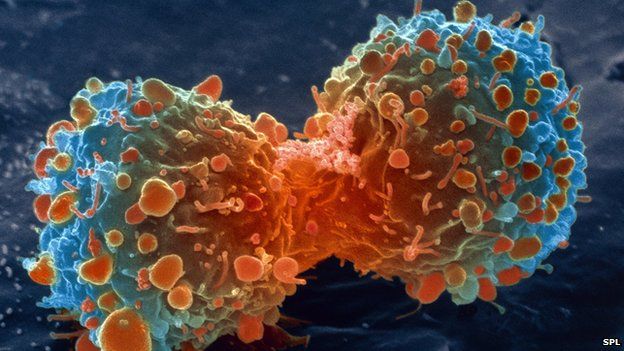
What is Cancer?
Cancer is a disease in which abnormal cells divide uncontrollably and destroy body tissue.
Local SymptomsLocal symptoms may occur due to the mass of the tumor or its ulceration. For example, mass effects from lung cancer can block the bronchus resulting in cough or pneumonia; esophageal cancer can cause narrowing of the esophagus, making it difficult or painful to swallow; and colorectal cancer may lead to narrowing or blockages in the bowel, affecting bowel habits. Masses in breasts or testicles may produce observable lumps.
Systemic SymptomsGeneral symptoms occur due to effects that are not related to direct or metastatic spread. These may include: unintentional weight loss, fever, excessive fatigue and changes to the skin.Hodgkin disease, leukemias and cancers of the liver or kidney can cause a persistent fever. Some cancers may cause specific groups of systemic symptoms, termed paraneoplastic phenomena. Examples include the appearance of myasthenia gravis in thymoma and clubbing in lung cancer.
MetastisCancer can spread from its original site by local spread, lymphatic spread to regional lymph nodes or by haematogenous spread via the blood to distant sites, known as metastasis. When cancer spreads by a haematogenous route, it usually spreads all over the body. However, cancer 'seeds' grow in certain selected site only ('soil') as hypothesized in the soil and seed hypothesis of cancer metastasis. The symptoms of metastatic cancers depend on the tumor location and can include enlarged lymph nodes (which can be felt or sometimes seen under the skin and are typically hard), enlarged liver or enlarged spleen, which can be felt in the abdomen, pain or fracture of affected bones and neurological symptoms.